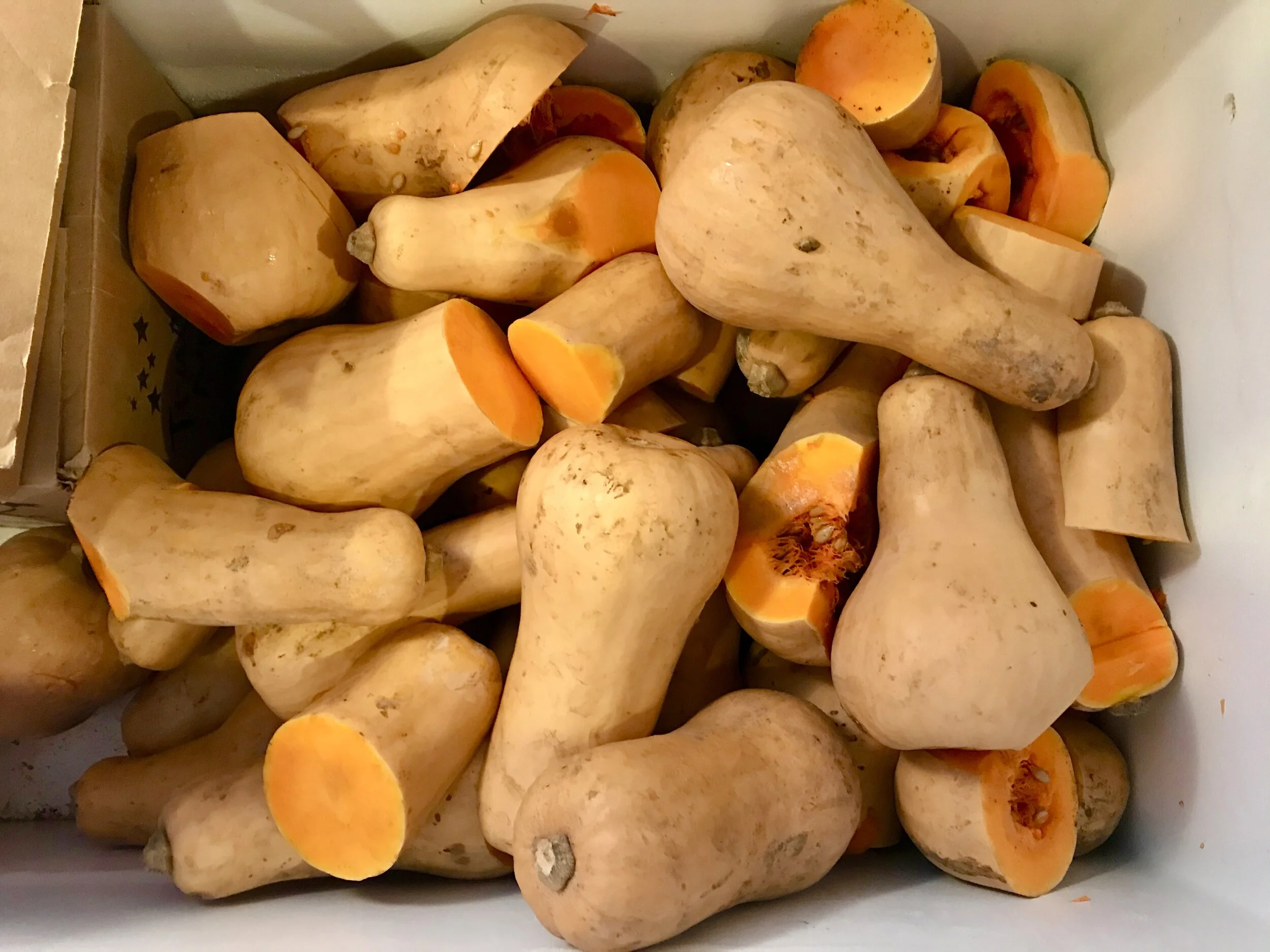By Melissa Hoffman and Shawn Smith.
Just yesterday, on a sunny day at the breaking of winter, we went compost-diving at our friend’s organic vegetable farm down the road. Justin Rich, owner of Burnt Rock Farm, and his team were sorting through their winter stores and he generously allowed us to retrieve as many of the discarded, partially-spoiled squashes as we could for our ducks.
Our farms are under 4 miles apart, 1 mile of which is our driveway! It was a short, but beautiful and restorative drive through the Huntington River valley — the river a thread linking hillside SHO and riverside Burnt Rock. It reminded us how truly interconnected we are with the larger landscape around us, and the community that inhabits the hillsides and riparian flats. We, like our wild kin, meet a great many needs in the flow between the forested upper elevations and open expanses that line our village waterways.
We harvested 6 brimming buckets worth of butternut squash, not making much of dent in the compost heap. In removing those spoiling squash from direct composting, we were repurposing the nutrient-dense, fiber rich “food waste” into supplemental duck feed at the tail of a long, cold winter. We were putting the high-quality, organic food toward an intermediary process with multiple benefits that ultimately leads to the same result.
SHO’s farmstead is nestled against the foothills of the Green Mountains, directly below the looming summit of Camel’s Hump. We get a lot of snow, and lately a lot of ice. The winds are brutal, as are the snowdrifts. This makes for limited outdoor time for the flock for as long as winter stays with us. They don’t complain, trust us. They are content with their indoor abode, streaming Pandora stations, and amazing love and attention bestowed upon them by our elite duck caretakers. But, there’s a chunk of the year when they’re not enjoying wild foraged plants and insects.
Enter spoiling squash. Of course, we don’t feed the ducks spoiling food. We trimmed off the inedible parts, and tossed them — whole — in our chest freezers (usually filled with berries). After trialing different ways to feed massive amounts of squash to the flock, we found that freezing them was the most time and cost efficient. Freezing breaks the cell structure of the squash, and upon thawing the ducks easily eat the soft flesh and small seeds. We split the squash and place them in their water bowls, where - of course - ducks prefer to eat. This not only gives them something fun and new to do during the winter days, it offers amazing nutritional supplementation and there’s an incalculable “happiness” factor — let’s face it, they go giddy when they see squash.
With the nutrients getting broken down and processed by the ducks, it seems they are benefitting from the nutrition and our food system is benefitting from their accelerated composting of the material. They then offer it to us for integration into the food system via their manure which is captured in their hay bedding inside the barn. We stockpile dirty bedding all winter, and then manage it for direct-placement in the system to serve as weed suppression and in-place compost decomposition, or make it into sanctuary compost. In this we have a found an enhanced, more beneficial cycling of food to support land, animals and humans.
The benefits of integrating wild and rescued farm animals into a regenerative vegan farming system are endless. We are just beginning to scratch the surface of what’s possible, and uncover the many opportunities for ecological enhancement alongside non-human and human animal health and wellbeing. If you don’t have your own food system to draw from, find a local organic vegetable farm — there are countless possible synergies between them and sanctuaries. Let’s unite!
Alex and Amelia trimming the squash. We made fast work of this batch, and gained great nutrition for the ducks.
Run a sanctuary? Contact us if we can help you establish food and habitat for your animals.
Run a farm? Contact us if we can help you integrate your food system with wildlife.


